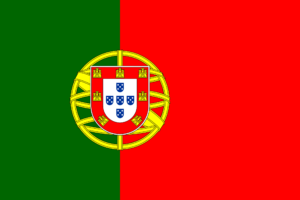History of Portugal:
Portugal lies on the western side of the Iberian Peninsula, next to Spain on the eastern side of the peninsula. The name Portugal comes from the Roman name of the city of Portus Cale.
The Portuguese territory was originally settled by the Celts. Later, the Phoenician and Carthaginian empires visited the region. During the Roman Empire, Portugal existed from 45 BC. It was part of the Roman Empire until 298 AD. In 711 AD, the Moors invaded and conquered the Iberian Peninsula. They ended up keeping part of the area over the centuries.
The Christian nations began a period of reconquista to “reconquer” their homelands. The Iberian Peninsula as seen by an Islamic Moor. These efforts continued for hundreds of years. In 1139 the Kingdom of Portugal was founded. Afonso Henriques was the first king of Portugal.
From the 14th century onwards, Portugal developed into a great power during the Age of Discovery. Portuguese explorers such as Vasco da Gama and Ferdinand Magellan began building Portugal into a vast colonial empire. Portugal established colonies in South America, Africa and the Far East. Portugal’s power will wane in the 20th century.
Information about Portugal:
| Capital | Lisbon |
| Population | 10,243,546 (Source: 2023 worldometer) |
| Major Cities | Lisbon (capital), Porto, Vila Nova de Gaia, Braga and Amadora, Guimaraes, Faro |
| Borders | Atlantic Ocean to the west and south and by Spain to the north and east |
| Gross Domestic Product (GDP) | $251,945,000,000 (2022 worldometer) |
| Currency | euro (EUR) |
Flag of Portugal:
Portugal Economy Key Industries:
Portugal Major Industries: textiles and footwear; wood pulp, paper, and cork; metals and metalworking; oil refining; chemicals; fish canning; rubber and plastic products; ceramics; electronics and communications equipment; rail transportation equipment; aerospace equipment; ship construction and refurbishment; wine; tourism
Portugal Agricultural Products: grain, potatoes, tomatoes, olives, grapes; sheep, cattle, goats, swine, poultry, dairy products; fish
Portugal Natural Resources: fish, forests (cork), iron ore, copper, zinc, tin, tungsten, silver, gold, uranium, marble, clay, gypsum, salt, arable land, hydropower
Portugal Major Exports: clothing and footwear, machinery, chemicals, cork and paper products, hides
Portugal Major Imports: machinery and transport equipment, chemicals, petroleum, textiles, agricultural products
The Geography of Portugal:
Total Size of Portugal: 92,152 km² (source: 2022 wikipedia)
Geographical Low Point of Portugal: Atlantic Ocean 0 m
Geographical High Point of Portugal: Ponta do Pico (Pico or Pico Alto) on Ilha do Pico in the Azores 2,351 m
Climate of Portugal: maritime temperate; cool and rainy in north, warmer and drier in south
General Terrain of Portugal: mountainous north of the Tagus River, rolling plains in south
World Region or Continent of Portugal: Europe
Geographical Coordinates: 39 30 N, 8 00 W
The People of Portugal & Culture
Portugal Government Type: parliamentary democracy
Portugal Nationality: Portuguese (singular and plural)
Portugal National Holiday: Portugal Day (Day of Portugal), 10 June (1580); note – also called Camoes Day, the day that revered national poet Luis de Camoes (1524-80) died
Portugal Independence: 1143 (Kingdom of Portugal recognized); 5 October 1910 (independent republic proclaimed)
Portugal National Symbol: armillary sphere (a spherical astrolabe modeling objects in the sky)
Portugal National Anthem or Song: A Portugesa (The Song of the Portuguese)
Portugal Languages Spoken: Portuguese (official), Mirandese (official – but locally used)
Portugal Religions: Portugal Day (Day of Portugal), 10 June (1580); note – also called Camoes Day, the day that revered national poet Luis de Camoes (1524-80) died
Interesting Facts about Portugal:
Portugal was the world’s first maritime power and the birthplace of the world’s first explorers.
Portugal’s colonial empire spanned her 600 years, making it the longest-lasting of modern European empires.
Portugal was the first European country to participate in the Atlantic slave trade.
Lisbon is older than Rome and one of the oldest cities in Europe.
Portugal is the westernmost point of Europe
Portugal holds the record for the shortest reigning monarch in the world
Portugal is Europe’s oldest nation-state
Portugal’s official name (República Portuguesa) refers to Porto, the country’s second largest city.
The oldest diplomatic alliance in the world is the Anglo-Portuguese Alliance.
Portugal is one of the first countries to introduce the Euro, and even today you can exchange Portuguese Escudo banknotes for Euros.
Portugal’s most famous export and national drink is port wine.
More than half of the world’s cork comes from Portugal.
Portugal is a world leader in renewable energy


